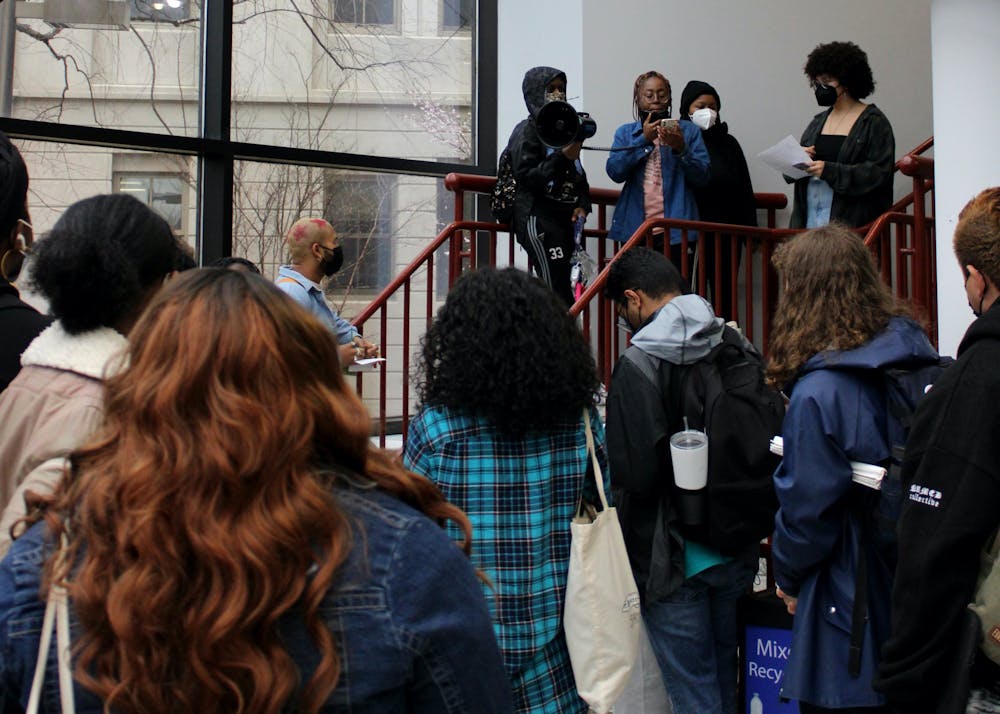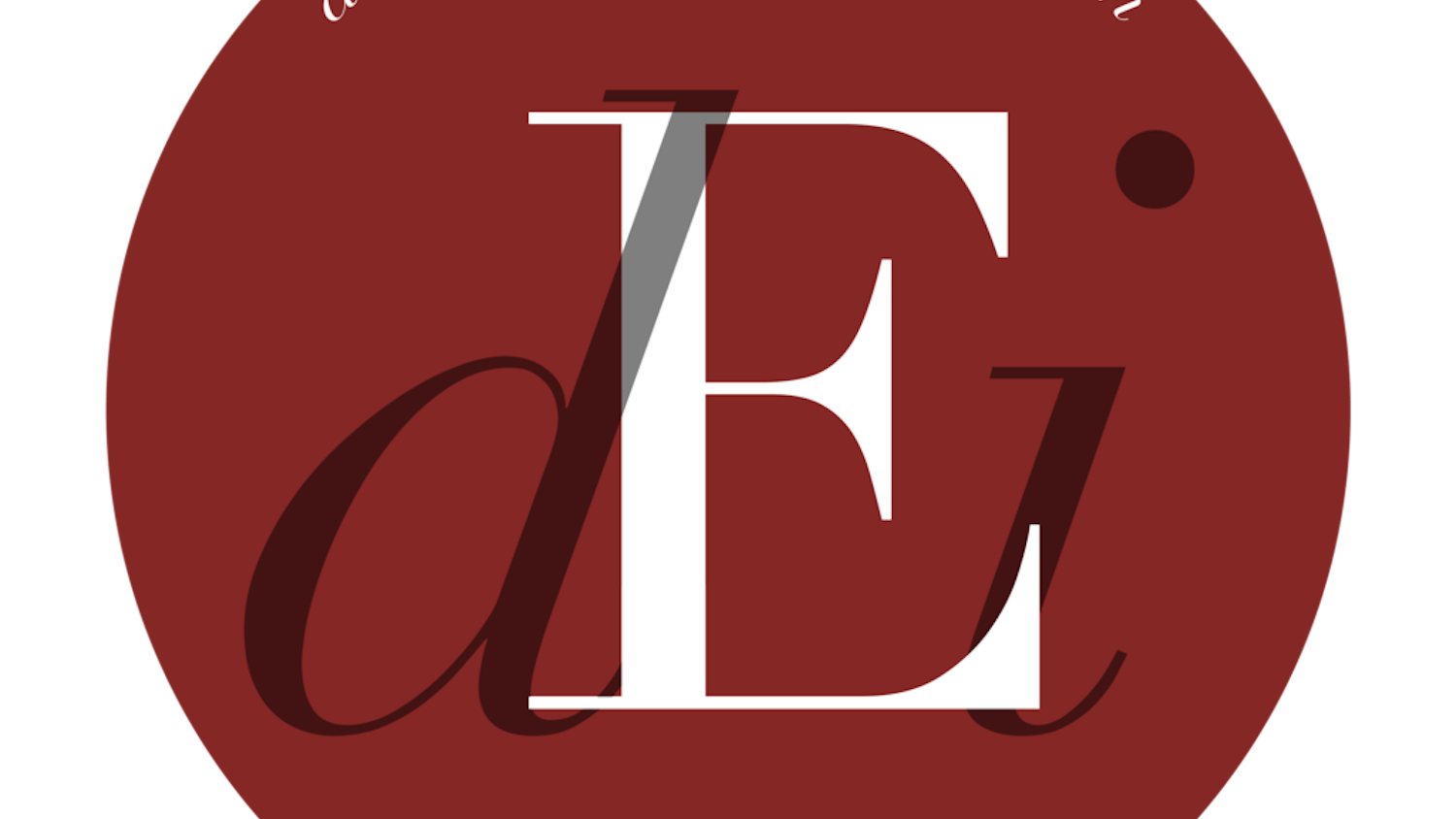Editor’s Note: Kayla Kelly, The Eagle’s opinion managing editor, was not involved in the writing, reporting or editing of this story.
Student activists from The Bridge Takeover are urging The Bridge Cafe to be restored as a cultural hub and safe space for students of color on campus, drawing on its origins as a space for Black students.
Kayla Kelly, a junior in the School of Public Affairs, started the Instagram account @thebridgetakeover a few months ago to initiate social change and recreate a space for arts, culture and politics for students of color on campus. After starting the account, Kelly and other student organizers staged a 15-minute sit-in on March 23.
“I spoke with upperclassmen about having actual safe spaces for BIPOC because I’ve heard of [the Hub for Organizing, Multiculturalism and Equity] in MGC to discuss cultural issues on campus,” Kelly said. “I mentioned that and then these upperclassmen said, ‘That’s what The Bridge used to be.’”
Kelly led a demonstration on the stairs of the Mary Graydon Center outside The Bridge, beginning with speeches by the three organizers, then moving inside The Bridge for a sit-in.
“How many Black Bridge events have you been to?” Stevie Early, a sophomore in SPA who co-organized the event, said in her speech. “For me, it’s zero, and that’s not for a lack of wanting to attend, but a lack of them existing.”
In 2017, The Bridge hosted a monthly poetry event that featured Black Boy Fly Collective – a poetry group from Philadelphia, jazz performances, open-mic events co-sponsored by The Latinx & American Student Organization at AU, the AU South Asian Student Association and No Lost Generation At AU, an organization dedicated to solidarity with refugees and displaced persons.
Kelly took it upon themself to research more about the history of The Bridge from The Eagle archives and The Bridge’s website. They found that The Bridge, a student-run coffee shop that opened in 2017, was originally a cultural hub for Black students for nearly two years. A group of Black students had performed a similar takeover in the past, but that movement fizzled out around 2019 as the students involved either transferred or graduated, Kelly said.
As they learned more about the history of The Bridge, Kelly said they wanted to bring that culture back with the help of other student organizers through the installation of a monthly in-house series on race, class and culture, BIPOC-centered events such as spoken word performances, fundraising for community groups on campus and features of Black and BIPOC artistry inside the cafe.
David Gonzalez, the coordinator for cafe management and facilities support, said he met with the organizers of The Bridge Takeover Wednesday to discuss their proposed changes.
“I think [these changes] are beyond feasible,” said Gonzalez, who helped open The Bridge in 2016. “I’m excited that conversations are happening, especially as someone who’s on campus Monday through Friday. I think that the way we have communicated has changed because of COVID, and so I’m excited that we’re moving in a way that’s fostering more communication across campus partners.”
Jadyn Newman, a junior in the School of Communication and SPA, is another co-leader of The Bridge Takeover who spoke at the demonstration. In her speech, Newman listed specific demands for The Bridge staff and managers: restoration, support and a shift of power.
Newman said restoration calls for programming at The Bridge to be co-sponsored by campus affinity organizations and a monthly in-house series for AU community members to educate themselves. Support includes collaboration with the owners of The Bridge, routine fundraising for on-campus affinity organizations and features of Black and BIPOC artistry and businesses from students on campus. Lastly, the shift in power asks that The Bridge staff respect requests for programming space and that the hiring process for employees meets a diversity quota of 50 percent students of color.
Newman said an affinity space would benefit Black students, like herself, who attend a predominantly white university.
“During my time at AU, it’s been a struggle to find a place where I feel comfortable, where I feel at home, where I feel like my presence is wanted rather than out of place,” Newman said. “I think as a student of color, especially Black students at a PWI, it can be really difficult not to deal with things like imposter syndrome or deal with issues of feeling like I don’t deserve to be somewhere on campus or parts of different communities.”
Newman said she wants an informal space for students of color to gather, especially since she said has dealt with instances of racism throughout her three years at AU.
Early said she has similar experiences, adding that when she first came to AU for orientation, she reported her orientation leader to the University administration for racism. Early said the issue was resolved when the orientation leader apologized and owned up to their mistake.
“The big thing for me, though, was that I shouldn’t have had to do that myself,” Early said. “I should have had a space where I could have been able to talk to somebody about it, and I didn’t have that at the time.”
While this incident took place before her freshman year, Early said she and other Black students still lack a space to share their experiences.
“I think the administration has known for a long time that they needed to make a better space than just one [Black affinity residence hall] for people of color to be able to talk,” Early said, citing the University’s fall 2021 implementation of a Black affinity housing option in Roper Hall.
The demonstration and sit-in represented the first of many more events to come, Kelly told The Eagle.
“I’m very confident that this movement will live on as we grow and develop, so I’m very confident that this will work if we are strategic and facilitate conversation that is needed to create a well-rounded space for everyone,” Kelly said.





